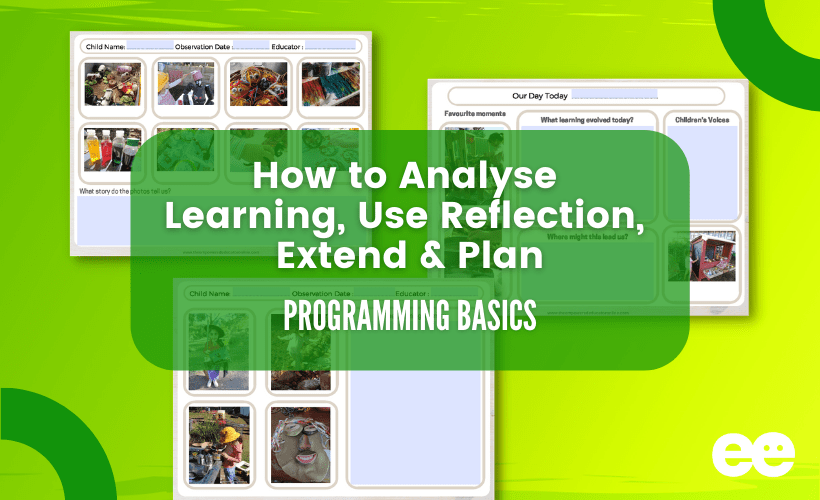
What does analysing an observation mean in simple terms? How do I start?
5 questions to ask when you make an analysis of your observation.
Ask yourself….
6 Questions to ask yourself when planning extension activities
Planned Activity Evaluation/Reflection
Step 1 – Document your observation
This is an example of my photo observation templates – pretty simple, the photos usually tell the story and are the main focus – text uses language of the EYLF and the child's voice. There is no need to write to much, a few lines is sufficient – just make sure it is meaningful. if you feel these types of simple templates would work for you download the pack HERE.
Step 2 – Complete Analysis & Forward Planning
Step 3
Step 4
Step 5 – Plan and include on program
Step 6 – Complete the cycle

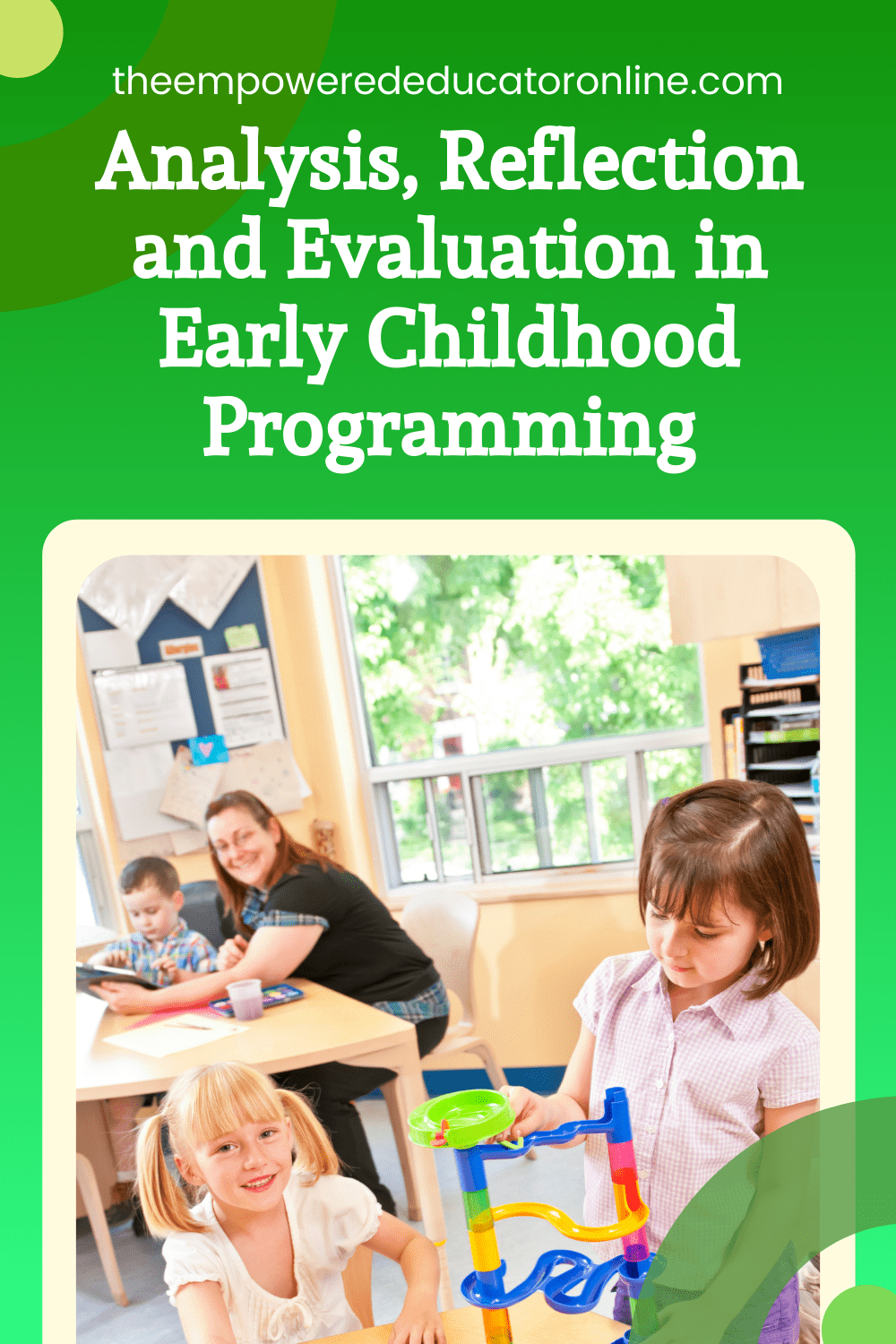
A Little About Me
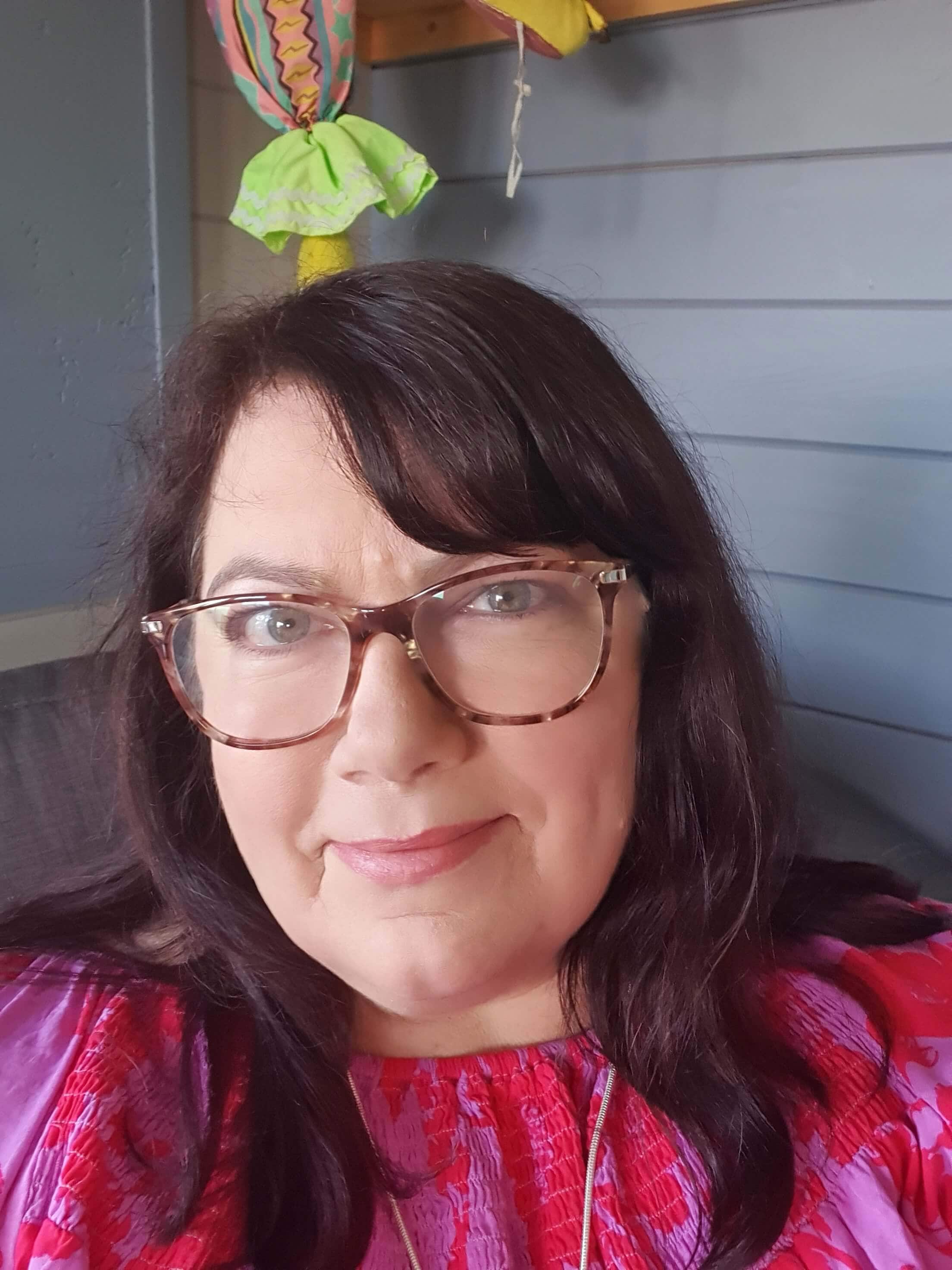
Jodie Clarke is an early childhood professional supporting educators who want and need to stay passionate about the work they do! She has 30 years hands-on experience in the early childhood and human services sectors across many different roles.
Jodie is mum to 3 in Australia and has already helped thousands of educators with their work through her popular blog posts, activity ideas, online training and e-books.


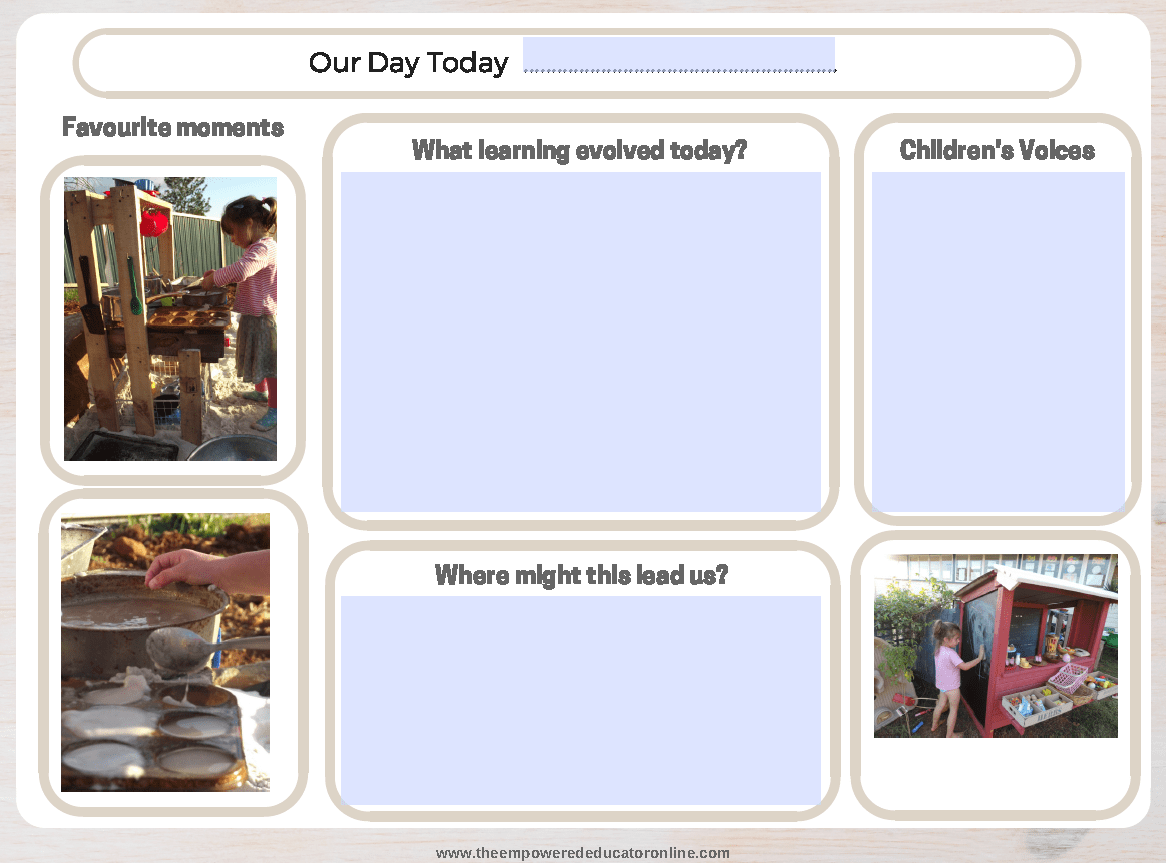
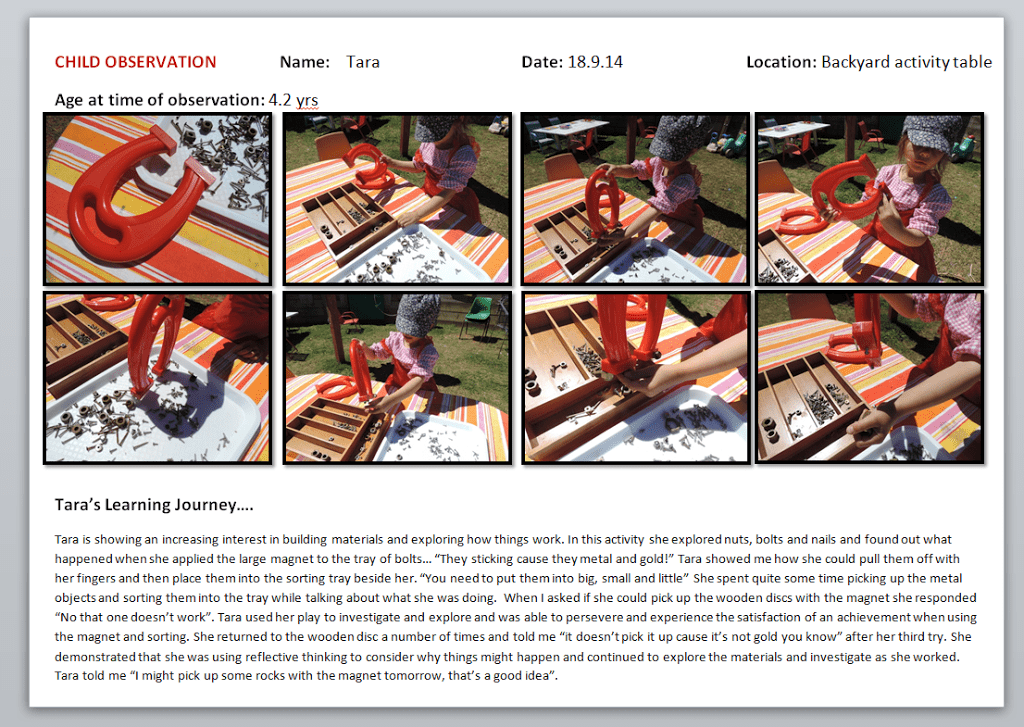
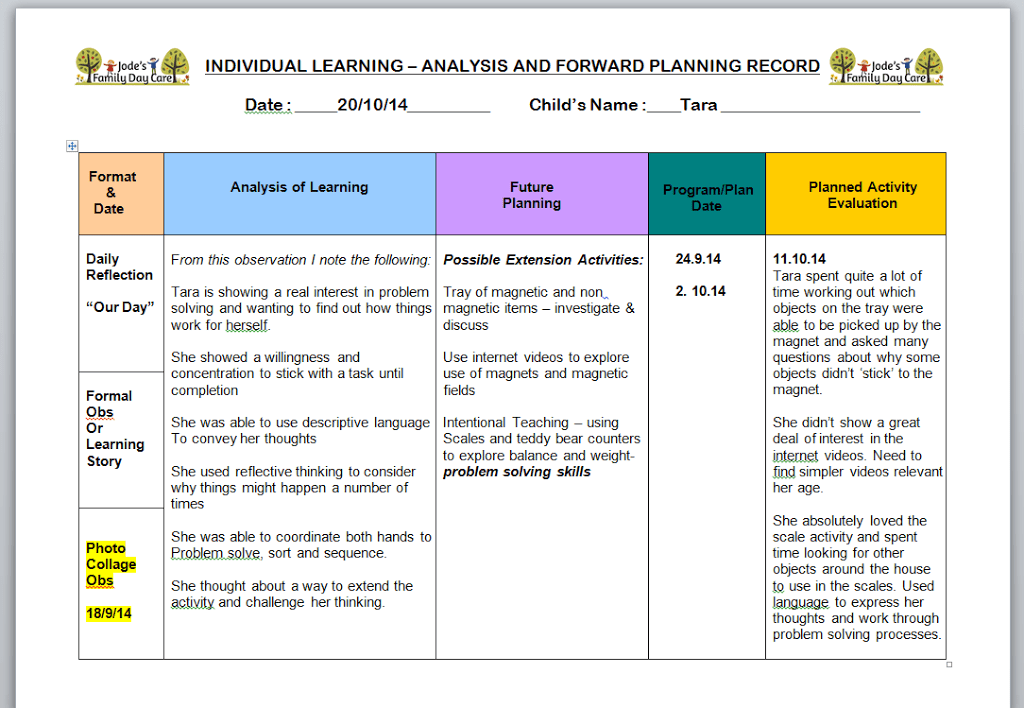
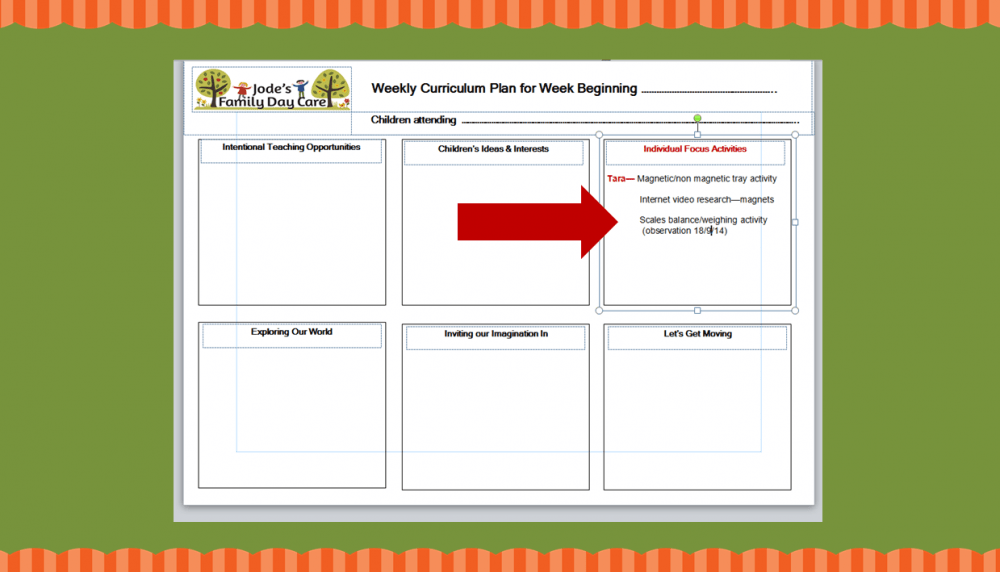
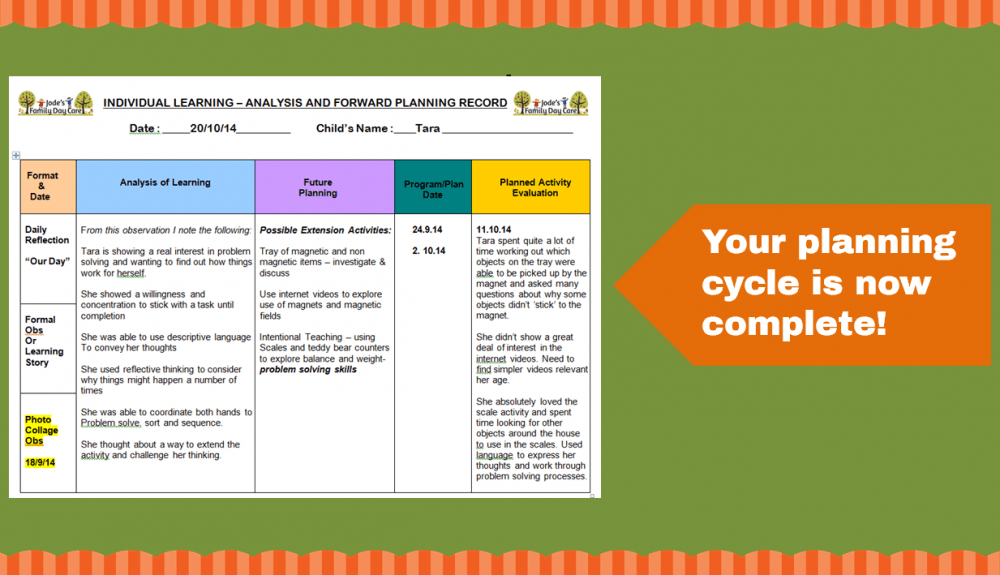
Love this post and love your forms. I can see them as being extremely helpful for my PreK and school age teachers.
That’s great Linda! Thanks so much for your feedback and I hope your teachers enjoy using them too. x
Thanks Linda, so glad you find them helpful!
Great post
hai jode
i am going to do family day care .what is children learning documents//
can you help me with some templates
Hi Aby, congrats on starting your family day care. There are lots of articles for you to read here on my blog under ‘programming’ or ‘home daycare’ if you want to have a search or you can find my planning templates and ebooks for more in depth support on this link > https://www.theempowerededucatoronline.com/product-category/earlychildhoodplanning Hope that helps, good luck with your new role 🙂
Fantastic work!!
What is the difference between Evaluate and Reflection thank you.
This is fantastic,
I quite often refer back to your blogs to remind myself on what I’m supposed to be doing.
Random question though, does the analysis and evaluation form go into the child’s portfolio or into the educators ‘programming’ files?
Personally I just put them into my own programming files either on the computer or hard copy. Up to you as educator though , nothing wrong with putting in portfolios but I’d still be keeping a copy together with your programming files as the idea is that using that form saves you time not having to look up the info again when extending and writing next weeks/months plan. I’m glad you find the blogs helpful!
Hi Jodie just read your piece on reflection and evaluation, I have been teaching both secondary, primary and and a little bit of Early childhood for the last 25 years. I was given the opportunity to introduce Early childhood studies to the secondary school I am now working at. I still have much to learn about early child hood practices and at times I am learning along side my students. I am just about to introduce the concept of reflective practices and being a professional educator to my year 12s and found your article so clear and inspiring. I would like to share it with my students, and will encourage them to follow you. It is inspiring to read information from some one who is obviously passionate about Early Child hood but also inspiring the next generation to value the importance of teaching this age group. many thanks Teresa
Thank you so much for sharing
I am grateful to you